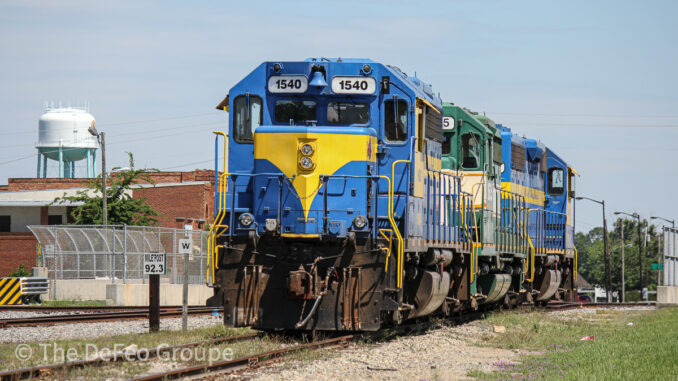
The American Short Line and Regional Railroad Association (ASLRRA) supports Congressional action to avert a shutdown of the nation’s freight rail system.
Although most of the 600 short-line railroads do not participate in national bargaining agreements, a strike would significantly and immediately impact small business railroads that serve as the critical first and last-mile connections for thousands of manufacturing, industrial, agricultural, and energy customers nationwide.
“While a voluntary agreement between the Class I railroads and all 12 of the labor unions involved in the negotiations would have been preferable, it has become clear over the past few weeks that it is not likely, and Congressional intervention is now necessary,” Chuck Baker, president of the ASLRRA, said.
Eight of the 12 unions have ratified the tentative agreements that were negotiated with the assistance of the Biden Administration in September and based on the recommendations of the Presidential Emergency Board (PEB). As the other four unions have not ratified the agreements, a strike threat looms without Congressional intervention.
As has been widely reported, a strike would cause massive and unnecessary supply chain disruption, affecting consumers nationwide – at the rate of an estimated $2 billion per day in lost economic activity.
“Short lines are 100% committed to doing our part and more to provide excellent freight rail service, enable the success of our customers, and get the American freight transportation network back to peak reliability and efficiency, but any rail work stoppage or any further delay in getting a labor agreement completed helps no one: it would greatly exacerbate the ongoing supply chain challenges, increase uncertainty, and needlessly upend the U.S economy,” Baker said.
“By any objective measure, the tentative agreements that would be implemented by the legislation being considered are a win for rail labor – it includes a 24% compounded raise over five years, plus $1,000 bonuses each of the five years, plus no significant changes to a robust health care and retirement package,” Baker said.
On November 30, 2022, the U.S. House of Representatives will take up legislation on the issue, with the Senate acting shortly thereafter.
“As soon as the legislation is implemented, the rail workers who are part of this negotiation can get the backpay and the raises they deserve, and the Class I railroads will have the tools they need to retain existing employees, hire new ones, and focus on driving efficient and reliable value for our customers,” Baker said. “It will then be incumbent on all of us to repair labor relationships and recommit to making freight railroading the premier blue-collar career in America.”

